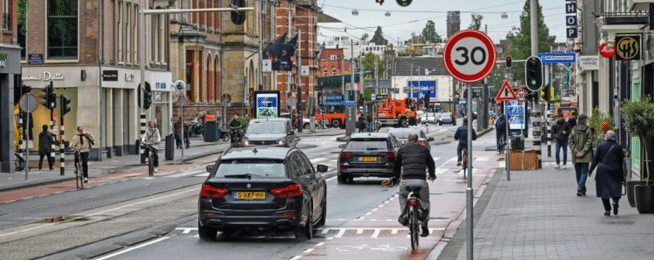Amsterdam is set to drop speed limits to 30km/h on a whopping 80% of its streets from next month.
The city joins a growing global list of locales recognising the benefits for all road users and says it expects the change to result in 20-30% fewer collisions.
Political leaders say the changes will allow drivers a better view of their surroundings and more time to react in unexpected situations
Researchers say the braking distance when a vehicle is travelling at 50km/h is 27 metres, while it is more than halved (to 13 metres) when a vehicle is travelling at 30km/h.
Research also shows that when a vehicle collides with a pedestrian or bike rider at 30km/h, there is a 10% likelihood of fatality; when the vehicle is travelling at 50 km/h, there is an 85% chance of fatality.
The introduction of the 30km/h limit is less than a month away, but the city is preparing the population by adjusting road markings and installing new signage. It has released an online colour-coded map displaying the roads that will remain at 50km/h and those changing to 30km/h.
The OECD recommends 30km/h as the gold standard for speeds on local streets, and these limits have been shown to reduce collisions and injuries in places that they've been implemented.
The City of Edinburgh introduced 30km/h speed limits on 80% of its streets in 2016, reducing collisions by 40%, fatalities by 39% and serious injuries by 33% within a year.
London introduced 20mph (32km/h) speed limits in the central Congestion Charging Zone in 2020 and saw the number of collisions fall by 25%. The number of collisions with vulnerable road users, meanwhile, decreased by 36%.
More recently, Wales made 20mph the default speed limit in built-up areas with the expectation of avoiding 2000 injuries and saving up to 10 lives each year, following in the footsteps of Spain, Paris and Brussels.
In Australia, 30km/h limits have been trialled in locations around the country, including Wollongong, Newcastle, Perth and Melbourne.
Bicycle Network has long campaigned to make this the norm across the country to improve road safety and make our streets more pleasant places to ride. To read more, head to our campaign page.
Or become our friend and subscribe to receive our fortnightly newsletter.


